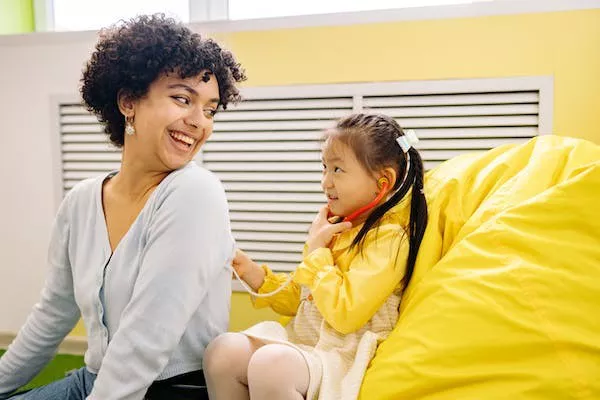Parental involvement plays a pivotal role in shaping a child’s development and overall well-being. As active participants in their children’s lives, parents contribute to various aspects of their growth, including academic achievement, social skills, emotional intelligence, and behavioral patterns. The importance of parental involvement cannot be overstated, as it lays the foundation for a child’s success and happiness in the long run. In this article, we will delve into the multifaceted significance of parental involvement in a child’s life and explore its impacts across different domains. We will also shed light on the best practices and strategies to foster effective parental engagement.
Academic Success and Educational Attainment
A plethora of research studies have consistently shown that children with involved parents tend to perform better academically compared to those whose parents are less engaged. Parental involvement positively influences a child’s attitude towards learning, promotes better study habits, and enhances academic motivation. When parents actively participate in their child’s education by attending parent-teacher conferences, monitoring homework, and engaging in discussions about school life, children perceive education as a priority and are more likely to excel in their studies.
Social and Emotional Development
Parental involvement significantly impacts a child’s social and emotional development. Children who experience consistent love, support, and emotional availability from their parents are more likely to develop healthy self-esteem and a secure attachment style. These children are better equipped to build positive relationships with peers, develop empathy, and manage their emotions effectively. Parental involvement also serves as a protective factor against behavioral problems, such as aggression and delinquency.
Communication Skills and Language Development
Effective communication is a fundamental skill that forms the basis of human interaction. Parents who actively engage in conversations with their children create an environment that fosters language development and strong communication skills. Through regular dialogue, children learn new vocabulary, express their thoughts, and refine their articulation, all of which are crucial for their cognitive and social growth.
Health and Wellness
Parental involvement extends to promoting the health and wellness of children. Parents who model healthy behaviors, such as regular exercise, a balanced diet, and adequate sleep, positively influence their children’s lifestyle choices. Additionally, parents who actively participate in their child’s healthcare decisions and appointments ensure that their children receive the necessary medical attention and support, leading to improved overall health outcomes.
Career Aspirations and Future Planning
Supportive and involved parents play a key role in shaping their children’s career aspirations and future planning. By offering guidance, encouragement, and exposure to different fields, parents can help their children explore their interests and talents. This involvement empowers children to set realistic goals, make informed career choices, and develop a sense of purpose for their future.
Reduced Risk Behaviors
Studies have shown that children with involved parents are less likely to engage in risky behaviors, such as substance abuse, early sexual activity, and involvement in criminal activities. Parental engagement acts as a protective factor by promoting open communication, setting clear boundaries, and instilling values that deter children from succumbing to negative peer influences.
Positive School Environment
Parental involvement contributes significantly to creating a positive school environment. When parents actively participate in school activities and events, they demonstrate their support for the educational institution, which, in turn, boosts teachers’ morale and encourages collaboration between parents and educators. This collaborative atmosphere fosters a more effective learning environment for all students.
Strategies for Effective Parental Involvement
Establish Open Communication Channels
Creating open lines of communication is fundamental to successful parental involvement. Schools can adopt various means to keep parents informed about their child’s progress, such as regular newsletters, emails, and parent-teacher meetings. Additionally, utilizing technology, like school apps or online portals, allows parents to access real-time updates about their child’s academic performance.
Encourage Parental Participation in School Activities
Schools should actively encourage parents to participate in various school activities, including parent-teacher associations, fundraising events, and workshops. Such involvement not only strengthens the parent-school relationship but also demonstrates the value of parental engagement to the broader school community.
Offer Parenting Workshops and Resources
Providing parenting workshops and resources can be beneficial for parents to enhance their parenting skills and stay updated on current educational practices. Workshops on topics like effective discipline, communication strategies, and understanding child development can empower parents to play a more active role in their child’s growth.
Embrace Diversity and Inclusion
Schools must recognize and appreciate the diverse backgrounds of their students and parents. Creating a welcoming and inclusive environment ensures that all parents feel valued and are encouraged to participate in school activities, regardless of their cultural, linguistic, or socio-economic background.
Engage Parents in Decision-Making
Involving parents in decision-making processes, such as curriculum development or school policy formation, can help foster a sense of ownership and investment in the school’s vision and mission. Parents’ insights and perspectives can contribute significantly to school improvement.
Conclusion
The significance of parental involvement in a child’s life cannot be overstated. Engaged parents play a crucial role in fostering academic success, social and emotional development, communication skills, and overall well-being. Their influence extends to shaping future aspirations, reducing risk behaviors, and creating a positive school environment. As schools and communities recognize the value of parental involvement, implementing effective strategies to encourage and support parents becomes a shared responsibility. By embracing parental involvement, we can collectively nurture the next generation of well-rounded, confident, and successful individuals.


